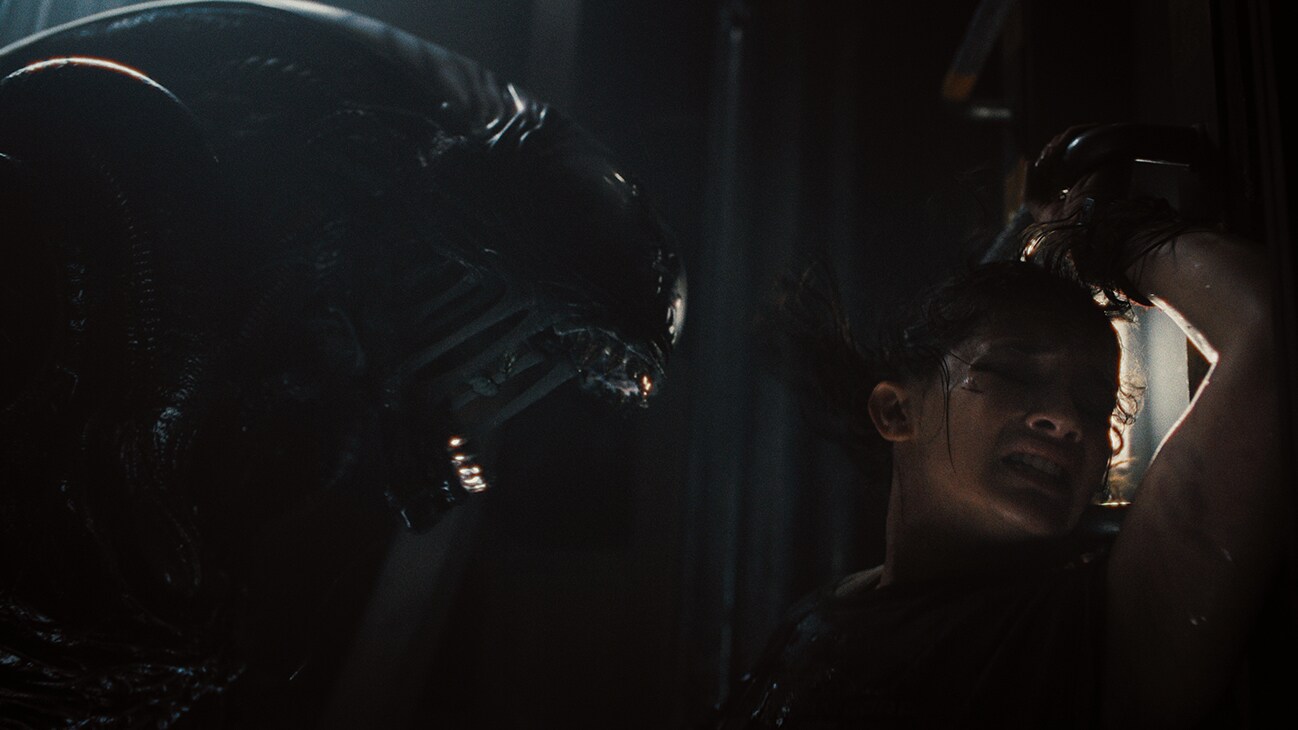The latest in the ‘Alien’ series is technically sound, but lacks originality

Photo via 20th Century Studios.
Alien: Romulus, the latest entry in the Alien franchise, deliberately attempts to bring the series back to its roots. The result is a technically sound film that unfortunately lacks originality.
Ridley Scott’s Alien is indisputably one of the greatest horror films of all time. When its now-iconic monster burst onto the screen in 1979, it was like nothing seen on screen before. Despite advancements in film technology and special effects, Alien remains viscerally real and unsettling today.
Alien’s success led to a number of sequels, prequels and spinoffs — a number of which, like David Fincher’s Alien³ and Scott’s prequel films, have been controversial for fans of the series.
Perhaps it’s no surprise, then, that director Fede Álvarez wanted to bring the franchise back to its roots with Romulus. Gone are the grand cosmic ruminations of the prequels, Prometheus and Covenant, or the bizarro sci-fi sensibilities of Alien: Resurrection. In their place is a straightforward, fairly bare-bones survival story in the spirit of the original film.
Romulus follows Rain (Cailee Spaeny) and her adopted android brother, Andy (David Jonsson). Together, they live a dismal existence as labourers in a corporate mining colony. When Rain discovers her work contract has been forcibly extended, the pair become bent on escape and fall in with a crew of largely forgettable rogues. Together, they plan to break into an abandoned space station and steal the necessary equipment to escape.
Upon their arrival at the station, things quickly go downhill for Rain and her friends, and they find themselves being hunted by an extraterrestrial creature.
Romulus’ greatest achievement is recreating the aesthetic style of the original film. From repurposed airplane interiors to old, boxy computers, Alien’s set designers saved money while simultaneously giving the film a highly appealing look. Romulus beautifully recaptures this junky, retrofuturist style without looking cheap or dated.
The effects used to create the alien creatures in Romulus are also excellent. From the first appearance of the spider-like “facehuggers” to the showdown with the Alien in the final act, every monster put on screen is visually stunning.
Spaeny and Jonsson, along with Isabela Merced, deliver standout performances in the film, although they are not always aided by the script. Across the board, Romulus’ characters are frustratingly one-note. Spaeny is excellent as the film’s protagonist, Rain, but her transformation from reluctant co-conspirator to grizzled survivor is less compelling than it should have been, because Romulus spends so little time exploring her character.
Despite the outstanding visuals and strong performances, Romulus feels unsteady in its sense of self. The film suffers from an egregious number of callbacks to previous Alien films, to the point of undermining its own individuality. Rather than crafting new iconic moments for its heroes, Romulus prefers to recycle nostalgia for the previous films, using them to prop up its weak script.
One such scene should be a great heroic moment for Andy (Jonsson), but the writers’ choice to recycle iconic lines from Aliens deprives the scene of any individuality.
Another glaring example is that Romulus uses CGI to recreate the likeness of Sir Ian Holm, who played Ash in the original Alien, in yet another callback. Holm passed away in 2020, so the choice to use CGI in this way seems shockingly misguided, and at odds with the anti-capitalist social commentary of the series, which regularly grapples with the ethical dilemma of creating synthetic life.
Romulus, paradoxically, is a film that will likely please newcomers to the series but leave longtime fans unsatisfied. Despite its stunning visuals and mostly good performances, a combination of too many callbacks and recycled ideas leaves Romulus as enjoyable as it is deeply frustrating.







